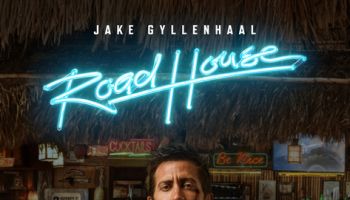Brooklyn, NY poet and playwright Lemon Andersen got his name from his looks.
When he was born he had yellow hair and looked quite different from his Puerto Rican mom, Scandinavian father and big brother. The name stuck and he’s been making lemonade with it ever since.
Lemon has won a Tony, he was nominated for a DramaDesk Award and he’s made several appearances in films by Spike Lee, who also served as producer for County of Kings, the show which put Lemon in the consciousness of thousands in NYC and around the world.
The book based on the show is the Grand Prize Winner of the 2010 New York Book Festival; and his poetry has been featured on everything from radio spots to print ads, to the limited edition Absolut Brooklyn bottle and most recently, on a viral spot directed by Rik Cordero.
Last Friday GlobalGrind was on hand to witness the premiere of Lemon, a documentary based on his life which reads like a Shakespearean tragedy set to congas and hip-hop beats. Both of Lemon’s parents died of AIDS and battled drugs; he’s a three time felon; and one of our nation’s finest poets.
The film opened up the DOC NYC festival and will close tomorrow. It was made by Laura Brownson & Beth Levison, who have a Facebook page about the film; check it out!
We spoke to Lemon last week before its premiere. Check it out!
GlobalGrind: Tell us how the documentary came about.
Lemon: I’m known for my playwriting. I’m not a slam poet, but I do a lot of spoken word poetry in cafes. It’s all driven by drama. The stuff that I do gets put up in theaters. I was trying to build a show and prove to these theaters that I can play with the big boys, which was very hard because my voice is very new in that world, the subscription world, where these audiences are used to seeing Shakespeare and work that they follow from other playwrights. I was fairly new to them, but the only way you’re going to get this respect is if you play in those kind of houses.
While I was trying to earn my respect and play big, this filmmaker named Laura Ronson approached me. After seeing me building the show, she was really interested in making a film and looking for a subject. I happened to be the one she was interested in, so she pretty much followed me around for three and a half years, following the struggles and triumphs I had to go through in order to prove myself.
[pagebreak]
What was it like for you when you won the Tony Award?
I think I wanted it the most, to be honest with you. I don’t think anyone else in the cast really understood how monumental it was. It’s good to win, we all wanted to win and of course, we were up. Def Poetry had closed by the time the Tony Awards came, so it was a good stinger to say, ‘OK, even though we closed, we’re still present and we won.’
When I was up on stage, I was really up there doing my own work on Broadway. I was always telling everyone I was going to be on Broadway. I had to convince myself that was where the goal was. Thanks to Russell who believed in this show, it cut deeper because it was around for years.
Describe the first play that you remember reading and thinking, ‘This is what I want to do.’
I think Short Eyes was very big to me. When I was locked up I read the anthology that had an excerpt from Carlito’s Way, as a script. It just stuck with me how these things are put up before they’re actually seen by a crowd. Short Eyes was a part of the Anthology also. I read short stories, poems, or prose and I would just move on. I was reading all these different writers and that’s how that came about. The first play that I saw that really stuck with me, I’m sure I’ve seen it as a kid, going on school trips. Those were spoon fed plays, it wasn’t really like great writing. It was just more like Peter and the Wolf, even though that’s pretty cool too, but I was really into shock! And Short Eyes was shocking.
Short Eyes was wonderful, and I was in prison [Laughs].
[pagebreak]
What was going through your mind? You’re in a place where Short Eyes takes place.
Yeah, it was all relative. People talk prison in prison anyway. That’s how people stay in prison and people are conformed. You try not to talk about the outside so you don’t get so home sick. You conform to the prison conditions in order to get by, because it’s a daily, claustrophobic environment. If anyone were to tell you anything about prison, Short Eyes is one of those pieces where everyone reads that play. It’s one of those selling knowledge plays that everyone knows about. Everyone trying to know more than each other.
It seems like the ghost of Miguel Pinero was walking with you because after reading that, you were performing at the Nuyorican Poets Cafe. He was one of the original founders.
Well, he’s still with me. Again, I don’t think anyone understands how deep this is for me. Mikey Pinero’s work, I know the guys he gets high with. I run into the guys he gets high with on the street and I’d buy chapbooks off these guys. They have writing from Mikey Pinero I got in my library. The foul part about it is that Mikey Pinero really represented me because he wasn’t one of those Puerto Ricans who was all about Puerto Rico. I find myself in the same situations that he did at his time, which was trying to prove myself to Latinos. I don’t speak their kind of Spanish so I don’t represent the island like you might want me to.
It’s like being a living ghost in a way.
Totally. I talk to people about that all the time. I’m Mikey Pinero without the habit.
What are you hoping to accomplish with this documentary? Are you looking for commercial success?
I’m the subject. To be honest with you, I’m not a documentary filmmaker. I made no choices, I’ve never seen the documentary, I probably won’t see it. I’m the subject of the film. I’d be lying if I wanted something out of it because I never really did. I just felt like it was just a legacy, so I took it as that.
[pagebreak]
If you could give a young a kid from El Barrio a piece of advice about becoming a writer, a playwright, or a poet, what would that advice be?
A successful one? There’s a difference between being a playwright and being a successful playwright. Damon Wayans says, ‘If you want to be an actor be in a play. If you want to be famous, pray.’ It’s the same thing. It’s not necessarily about finding religion, it’s more about going deep down in your soul and go so hard that you almost need to pray for your well being while you’re going after this as a job because it’s not meant for the weak at heart. Time is money and when you have money, what do you do with your time? This takes time. It takes time to write and establish yourself, to be able to knock down those doors and let them know. You have to take a lot of hard hits.
One thing I learned from Stan Lathan, and this is very important, is this business comes with let downs. You have to be able to use those let downs to mold you so that when they do come up, you know it’s part of you. You try to beat the odds by making less and less as the years go by. As far as playwriting, you have to find your own voice and your own style that makes you stand out. With me being a poet, that played a big role. I was able to create better dialog that was between my characters, if my characters were being played by one person. It seemed like poetically, I was ahead of everyone else because I see things that way. I see these characters having great language and it’s not even about the language so that it’s all poetry. I think people in the hood speak poetically to me. So I try to shine light on that drama.















